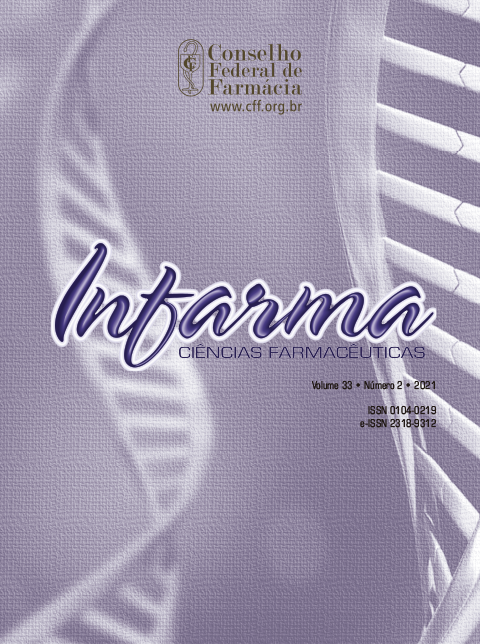ANTIBACTERIAL POTENTIAL OF THE ESSENTIAL OIL OF LIPPIA ALBA MILL. ASSOCIATED WITH LED LIGHTS
DOI:
https://doi.org/10.14450/2318-9312.v33.e2.a2021.pp188-196Keywords:
phototherapy, biological products, pharmacological sinergism.Abstract
Lippia alba, also known as erva cidreira, is an aromatic bush occurring throughout Brazil. Its essential oil has many bioactivities, but few studies of its use are associated to phototherapy. The aim of this study was to evaluate the antibacterial activity of the essential oil of Lippia alba (OEL) associated with blue, red, and yellow LED (Light Emitting Diode) lights against strains of Staphylococcus aureus and Escherichia coli. The oil was extracted by the hydrodistillation method. The antibacterial and modulatory activity was performed by the method of gas contact using the oil, LED lights, and antibiotics. All experiments were carried out in triplicate. The OEL has antibacterial potential against all strains tested, with a more expressive
result against the multi-resistant strain of E. coli when associated with the LED lights. The modulation of bacterial resistance, both in the combinations of oil + antibiotic + LED lights and oil + antibiotics, showed synergism against the tested multi-resistant strains. Therefore, the essential oil of Lippia alba associated with LED lights has an antibacterial and modulating effect by gas contact. These data may contribute to future research linked to development of new therapeutic strategies to combat resistant microorganisms.
Downloads
Published
How to Cite
Issue
Section
License
Authors who publish in this journal agree to the following terms:
- Authors retain the copyright and grant the journal the right of first publication, with the work simultaneously licensed under the Licença Creative Commons Attribution which allows the sharing of work with acknowledgment of authorship and initial publication in this journal.
- Authors are authorized to take additional contracts separately, for non-exclusive distribution of the version of the work published in this journal (e.g. publish in institutional repository or as a book chapter), with acknowledgment of authorship and initial publication in this journal.
- Authors are allowed and encouraged to publish and distribute their work online (e.g. in institutional repositories or on their personal page) at any point before or during the editorial process, as this can generate productive changes as well as increase the impact and Citation of published work (See O Efeito do Acesso Livre ).


